Plants ordered now will ship Spring 2026 🙂
Mandrake, officinarum (Mandragora officinarum) plant in a 5-inch-deep pot, organic
$21.00
Family: Nightshade (Solanaceae )
Hardy to Zones 6 to 10
(Mandragora officinalis) Herbaceous perennial. Native to southeastern Europe and the Mediterranean. Rare. Traditional usage (TWM): fertility, aphrodisiac, a magical totem, relieve pain, promote sleep. Source of tropane alkaloids–do not ingest. Plant prefers alkaline pH—deep, sandy soils, dry, in the part-shade. The plant begins its vegetative cycle in the midwinter, flowers in the spring, fruits, and goes quickly dormant in the summer, then re-sprouts from beneath the callus in fall or spring. Keep crowns in perfect drainage. I plant mine in deep sand mulch on the shady side of rocks. Flower color is variable, some plants making vibrant purple flowers, others flowering like washed-out lavender. Flower to 16 inches, giving way to green, apple-like fruits that eventually turn yellowish and soft before harvest. The smell is exquisite. Space plants 1 to 2 feet apart.
Potted plant in a 5-inch deep pot, certified organically grown
Please note: Mandrakes are rare and finicky. The plants are dormant more months of the year than they are aerial, and an aerial plant can easily go dormant in shipment. Therefore we guarantee only that you will receive a viable taproot in a pot. The plant may be up-potted to a gallon or planted to a sunny, well-drained site outdoors. It helps to mark the planting spot with a large rock to partially shade the plant. There is more about mandrake culture available in “Growing Plant Medicine” vol. 1 and 2, in Richo’s Blog as well as on our youtube channel Strictly Medicinal Seeds.
Out of stock

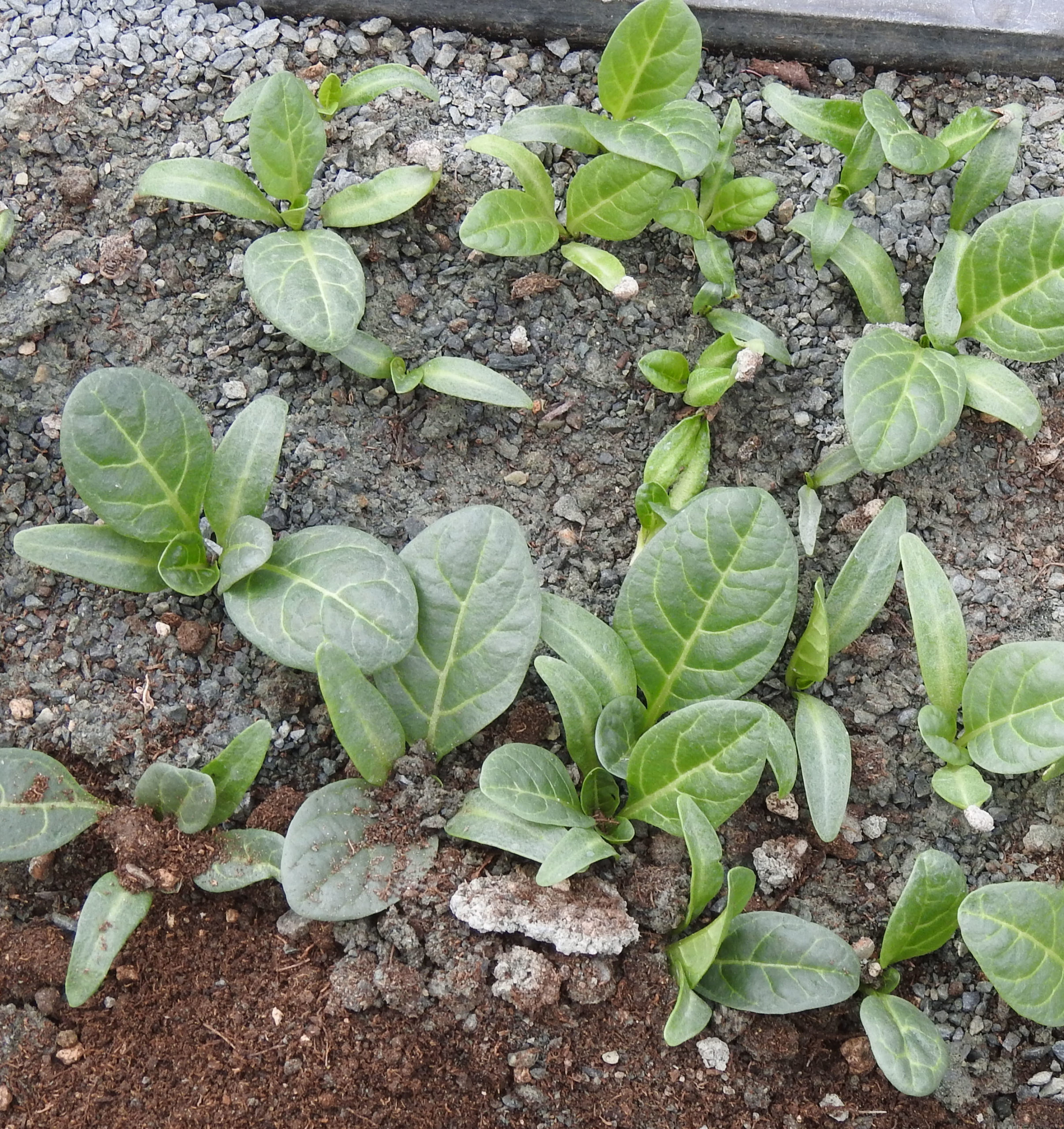
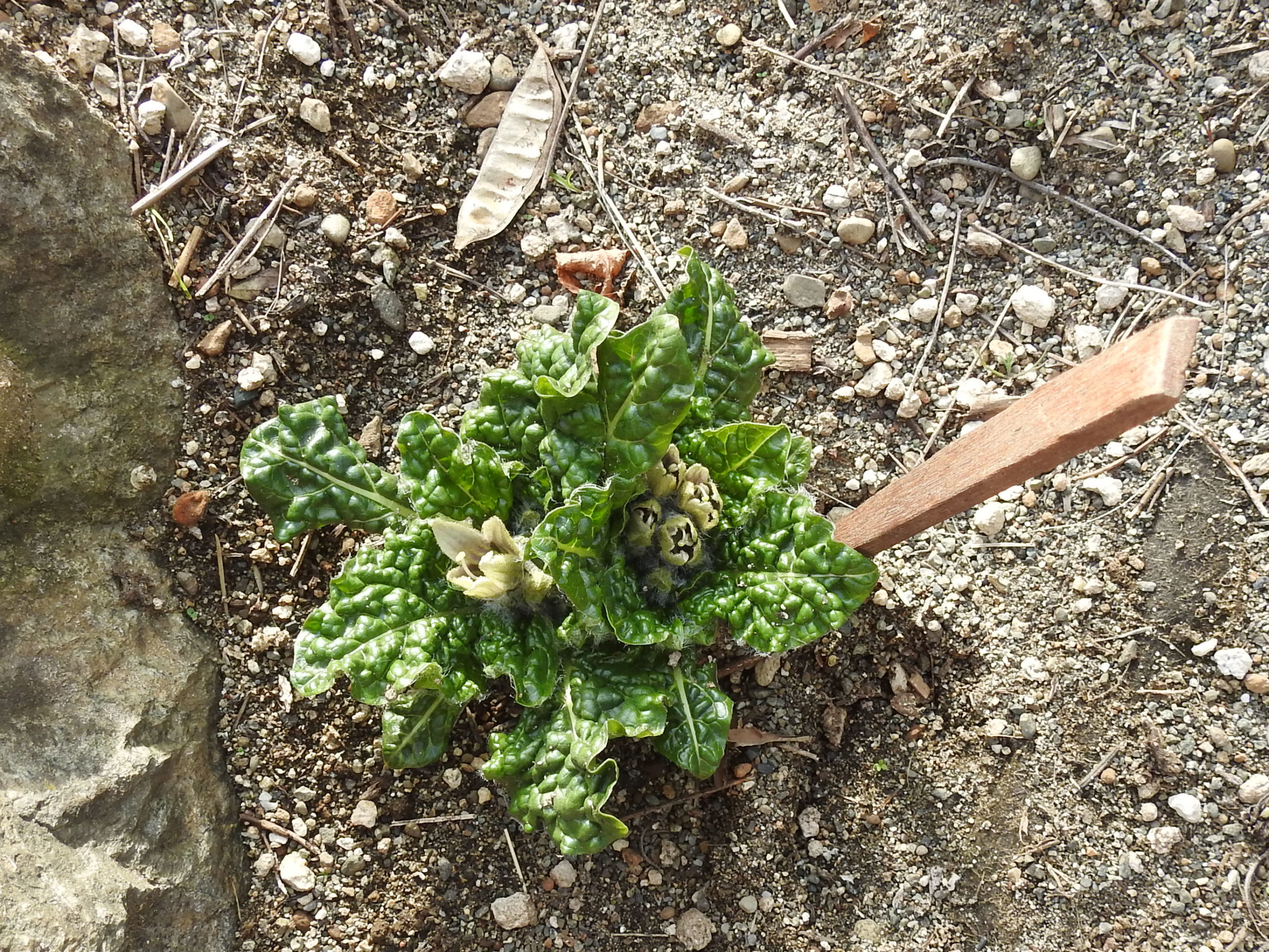
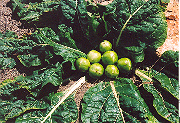
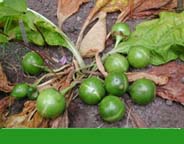
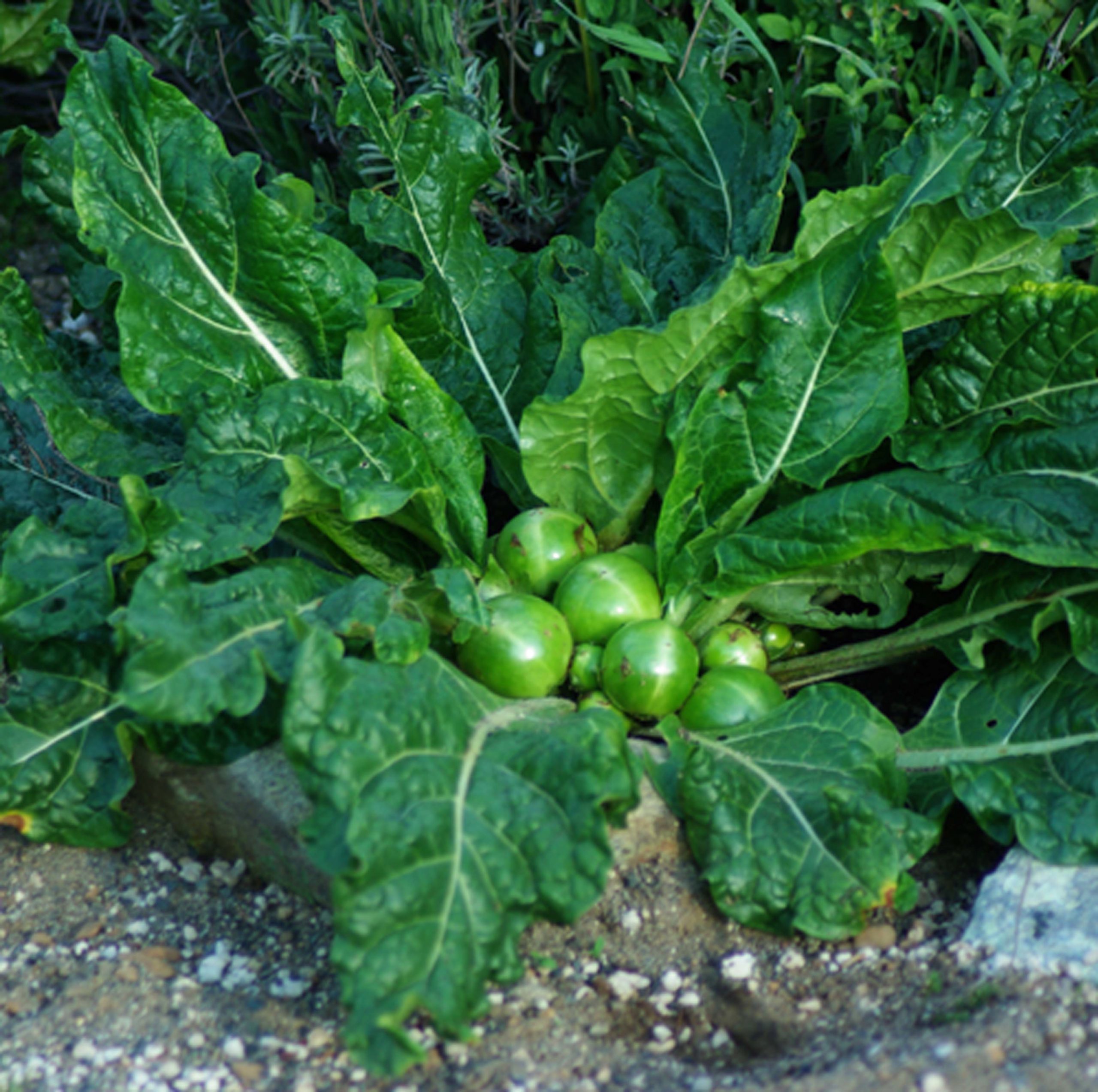
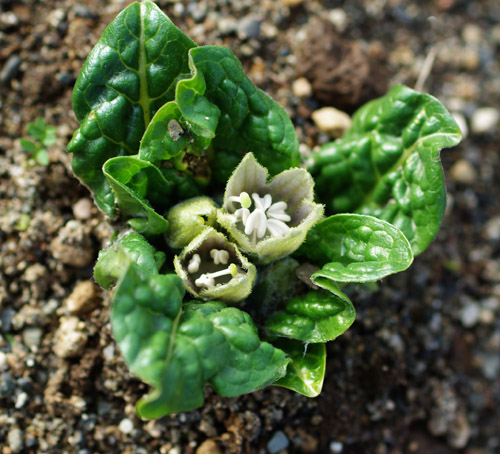
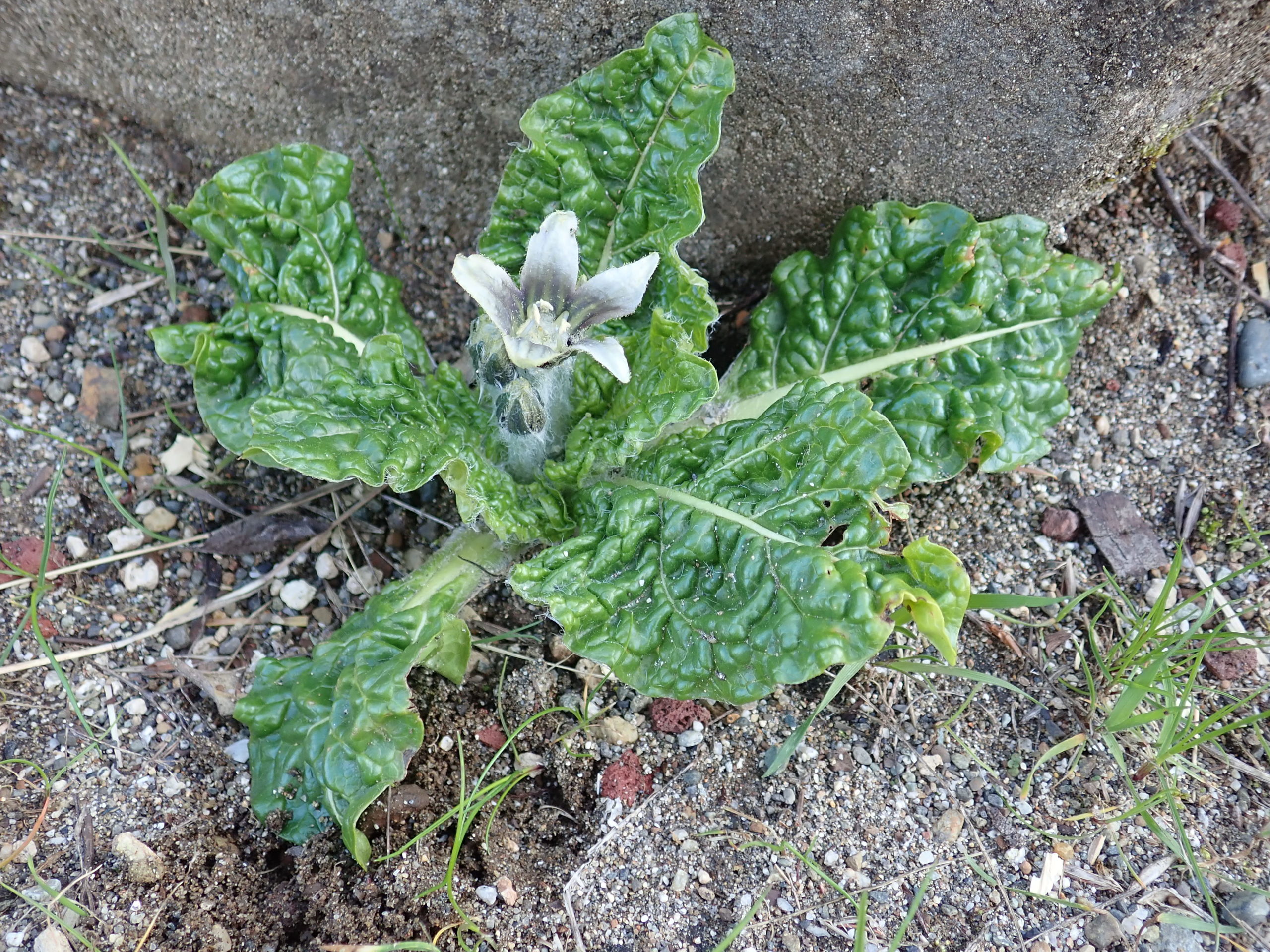
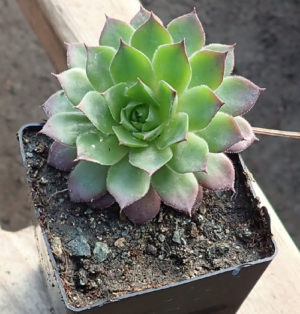
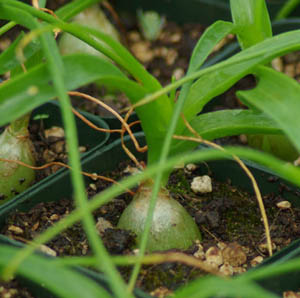
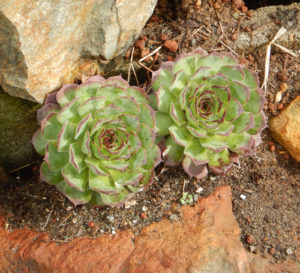
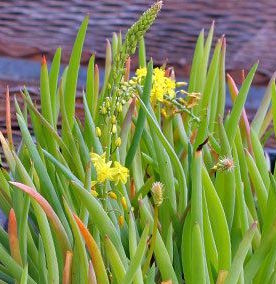
Ryan Michael Harlow (verified owner) –
They all arrived looking wonderful! All 3 with multiple leaves. Less than perky leaves look like normal aging, not shipping damage. Care and skill went into the packing which ensured they stayed put the entire journey. Im excited to start this adventure and the timing is beautiful!
I didnt happen to have sand on hand so instead I used happy frog as a base. I wanted to get them in bigger pots same day they arrived so I used what I had to mimic sand, on top of them being in cloth bags with an extra spacer under the bag to ensure the bag itself wont sit in water. One of them I decided to use 100% happy frog. The other two had a heavy amount of small river pebbles or perlite mixed in. 3 different mixtures gives me 3 levels of assurance that all 3 will make it no problem. Ive not yet had a single species completely fail and the ones that reached the worst states of health were in rough shape when I got them.
Its been a full day now and they are accepting of my home and have received love and assurance from the aloes and others. They are a wee cranky due to being stubborn about embracing the fresh new space–they are even still directly in the sand they arrived in–but I dont blame them. It was a long trip that get cold and now a whole new family to adjust too!
Upvote if this was helpful (0) Downvote if this was not helpful (0) Watch Unwatch Flag for removal
Question
Shawn Miller (verified owner) –
Hello! I just received my order of Mandrake and I am so excited. I wanted to ask what the best way to begin taking care of them would be. I live in utah in zone 6-7 and it is just getting to be cold here. It’s the end of October. I want to know if they will be ok planting outside in the ground in the cold even though they are not dormant. Or should I plant them in a pot and keep it outside? Should I pot them and keep them inside? And should I instead wait to plant them in the ground until spring, keeping them inside until then? I guess overall what would be your recommendation for planting and care for them given the cold season?
Thank you!
Upvote if this was helpful (0) Downvote if this was not helpful (0) Watch Unwatch Flag for removal
Richo Cech –
Hello Shawn,
Thanks for contacting and glad the mandrake plants made it to you in good form. All the questions you ask are answered in the blog “Makndrake, Beyond the Basics” in Richo’s Blog at this link which you’ll probably have to paste into a browser https://blog.strictlymedicinalseeds.com/growing-mandrake-beyond-the-basics/
In short, your best planting window is in the spring. You’re too cold in a zone 6 to transplant a 2-year-old plant outdoors in the fall, and I usually don’t transplant them until year 3 anyway. Unlike standard horticultural technique where dormancy is a prime time for transplant, this doesn’t seem to work consistently well with mandrake. It is better to transplant them in the spring when they have green growth. Please check the blog. My upcoming book “Growing Plant Medicine Vol 2” will be of great support to mandrake enthusiasts.
Upvote if this was helpful (2) Downvote if this was not helpful (0) Flag for removal
Vijaya Galic (verified owner) –
After bleeding on the thing for weeks it grew like crazy. We use it to hex our dog show competitors.
Upvote if this was helpful (0) Downvote if this was not helpful (0) Watch Unwatch Flag for removal
Question
Maria –
How long does an indoor potted mandrake live?
Upvote if this was helpful (0) Downvote if this was not helpful (0) Watch Unwatch Flag for removal
Richo Cech –
Hi Maria, The mandrakes are odd beasts. Generally they are healthier and more likely to flower and fruit if planted to habitat. However, I have seen potted mandrakes live reasonably well for decades. If growers understood what actually goes on with the plant during summer dormancy and winter/early spring reawakening, they would probably know better how to help the plant flourish. Usually when a mandrake goes summer dormant the crown rots back to several inches below the surface. This deterioration stops somewhere down the root and the root calluses. New growth occurs as sprouts from the edge of the callus. Under the right conditions, this new growth will become a vibrant and viable crown. Mature plants make a sort of nest of low-lying leaves that surrounds a flat expression of multiple crowded flowers. The flowers will mature and if pollinated transform into tiny green fruits on an ongoing basis for a couple of months. Then, the leaves will extend and shade the developing fruits. The plant will become a big leafy rosette. what I see from most growers is a potted plant that is too wet, the leaves splayed out and nearly drownded, no flowers because of course the plant is barely surviving, needing the things it is not getting–more room for the taproot, better drainage at the crown, more light and an alkaline soil. fertilizers appear to be unhelpful. listen to the plant, it will tell you what it needs. richo
Upvote if this was helpful (0) Downvote if this was not helpful (0) Flag for removal
Question
Anna (verified owner) –
Hello, I just received my mandrake plants and they are dormant. Can you please let me know how to care for them while they are dormant? Do I need to water them and keep them in sunlight? I really want to nurture these plants and I cannot wait to see them emerge. Does that happen in the fall?
Upvote if this was helpful (0) Downvote if this was not helpful (0) Watch Unwatch Flag for removal
Richo Cech –
Hi Anna, really wish i had a sure-fire answer for you. either pot up to a gallon and hold in moderate conditions, not completely dry, in the semi-shade until re-emergence in feb to march depending on zone. or plant in appropriate sandy soil full sun position and cover crown completely with fast-draining medium and will emerge again late winter to early spring. this can be the best because–then you’ve got it. read the mandrake blog at richo’s blog and watch the mandrake youtubes at strictly, r
Upvote if this was helpful (0) Downvote if this was not helpful (0) Flag for removal
Question
Alexandre –
Boa tarde. Você envia as senentes para o brazil? Será que consigo cultivar aqui?
Upvote if this was helpful (0) Downvote if this was not helpful (0) Watch Unwatch Flag for removal
Richo Cech –
as pessoas cultivam mandrágora em quase todas as zonas. não podemos enviar sementes para o brasil, são confiscadas pela biossegurança
Upvote if this was helpful (0) Downvote if this was not helpful (0) Flag for removal
Question
Sandy –
So, looking at the zones they prefer, they would survive in New Jersey’s 7A on the coastal plain, correct???
Upvote if this was helpful (0) Downvote if this was not helpful (0) Watch Unwatch Flag for removal
Richo Cech –
hi sandy, yes, given an open exposure and a fast-draining, alkaline soil i think they would overwinter. or more accurately, flower in the winter. r
Upvote if this was helpful (0) Downvote if this was not helpful (0) Flag for removal
Question
Rochelle –
I live in Zone 4 but would love a mandrake! Do they do well in pots?
Upvote if this was helpful (0) Downvote if this was not helpful (0) Watch Unwatch Flag for removal
Richo Cech –
Hi Rochelle, Most people do keep them in pots. They do relatively well. Richo
Upvote if this was helpful (0) Downvote if this was not helpful (0) Flag for removal
Richard noel –
Hi,Ricco the majority of my plants are potted outdoors in the summer inside for the winter would either atropa belladonna or mandragora officinails do ok with this method? thanks,Rick
Upvote if this was helpful (0) Downvote if this was not helpful (0) Flag for removal
Richo Cech –
hi richard, this scenario does work for belladonna. since mandrake is a winter grower, it is happiest left outdoors, even if potted, unless your winter is very cold, in which case i would advise moving it outdoors in the very early spring. this stimulates flowering. r
Upvote if this was helpful (0) Downvote if this was not helpful (0) Flag for removal
eve (verified owner) –
In zone 6B the belladonna came back after an especially cold winter. The mandrakes (one Officinalis and one Auntumnalis), whom I have been nurturing for three years with winter indoors were finally moved to a spot in 2021 that I thought could work outside so they could spread out. In a spot that got hot sun for part of the day they went dormant in the summer but sprang back when moved to a shadier spot. The winters before this one might have been fine, but 2021-2022 had lots of 0 degree days and that was way too much for these guys – even with mulch to warm them and near the house. Sigh. Back to the pot scenario, but this time I’ll do a much taller one so the tap root can unfurl nicely. I really want to see these fussy guys bloom. Every time I’ve ordered from Richo, the plants themselves have been wonderful. Big learning curve with this species, though. I think zone 7 might be just fine.
Upvote if this was helpful (1) Downvote if this was not helpful (0) Flag for removal
Richo Cech –
eve, such a good name for someone nurturing a biblical plant, you will see them come back, they have not died, i just know it, keep an eye out on the spot, keep weeds back, top-dress with sand. r
Upvote if this was helpful (0) Downvote if this was not helpful (0) Flag for removal
eve (verified owner) –
That would be amazing. I’m leaving it there and we’ll see! Thanks again!!
Upvote if this was helpful (0) Downvote if this was not helpful (0) Flag for removal
Question
Alison –
Hi there!
Outside of flower color, what’s the difference between this mandrake and Mandragora autumnalis? From what I gather, they’re both true Mandrake roots unlike mayapple.
Thanks!
Alison
Upvote if this was helpful (0) Downvote if this was not helpful (0) Watch Unwatch Flag for removal
Richo Cech –
hi alison,yes, autumn mandrake and official mandrake are both true mandrakes==mandragora, not some other plant. the autumn mandrake flowers and fruits in the autumn and the official mandrake flowers and fruits in the spring. there are many other differences–the autumn mandrake is smaller, the fruits are half the size, the fruit color is different, the leaves are narrower and savoyed, the seed is only about a fourth the size of the official type–it really goes on and on–they’re very different. r
Upvote if this was helpful (0) Downvote if this was not helpful (0) Flag for removal
Question
Adam Borges (verified owner) –
Hello! I received one of these plants in the spring happy and healthy, and I’m pleased to say that even after some unforeseen circumstances led to its neglect over the summer and fall, it seems to have emerged from dormancy unscathed. I just have some questions about how best to care for it now. For reference: I’m in zone 6 in the Northeast, the plant is in a deep pot of sandy, rocky soil, and it was under cover in a shadehouse up until October when it was brought out and left to get a little sun and rain. The website and book both state that mandrakes usually come up in midwinter, but this one started showing life earlier this month and now has three tiny leaves. Will its early appearance affect its ability to withstand winter? And is there a particular sort of location that would be best to keep it for now? I can’t help but be concerned about the inevitable snow since they like it dry, so I was considering placing the pot in my open air sunroom for shelter. And final question, should mandrakes be watered during this time? I’m far more used to plants that are dormant in the winter, it’s been a bit hard to wrap my head around a totally different cycle. Thank you so much for offering rare and fascinating plants like this and for all the advice!
Upvote if this was helpful (0) Downvote if this was not helpful (0) Watch Unwatch Flag for removal
Richo Cech –
Hello Adam, Thanks for staying in touch and mandrake is always full of surprises so take my advice with a pinch of salt (or a goblet of syrup). Mandragora officinarum is supposed to rise in January or February and is it emerges early it may well get prematurely burned by snow and frost so that it doesn’t send as much energy to the root as it normally would in a normal growing season whatever that is. So the plant might not develop real quickly although hopefully it’sll get a clue and start showing at the right time next year. Since its potted, just bring it into a cold and dry and sunny spot and don’t let the rains and the snow get to it. The longer it stays aerial the bigger the root is going to get, which in the end will result in flowers in 2 or 3 years, and then in 4 or 5 years the flowers will make fruits and then you’re in, it will probably produce on a yearly basis after that. That is, if you plant it in real dirt because potted mandrakes generally do not reach the size that one gets from planting it in situ. Like your plant, 4 of the 20 or so plants in one of my outdoor patches came up in the autumn this year, ie officinarum emerging at the time when autumnalis is suppiosed to–and all I can think is its a quirk of the odd weather we’ve been having, and in my ipinion it is not a good sign for the mandragora–i don’t expect to get fruits from those premature plants–they made aerials but no flowers–and I doubt they’ll express twice in the year–just not the nature of the beast. i suggest you go to the youtube channel and also richo’s blog and run searches for mandrake videos–there are several of them–they will help. richo
Upvote if this was helpful (1) Downvote if this was not helpful (0) Flag for removal
Alison –
Hi there!
When will the two year old mandrakes be back in stock? I thought I placed my order a few weeks ago but my service must’ve dropped before the order went through.
Thanks!
Alison
Upvote if this was helpful (0) Downvote if this was not helpful (0) Flag for removal
Richo Cech –
Hi Alison, Hit waitlist, we’re about to re-enable this as a less expensive sale on 1-year-old plants. Richo
Upvote if this was helpful (2) Downvote if this was not helpful (0) Flag for removal
Question
Melissa Zolodz (verified owner) –
I received my mandrake plant a few days ago. I opened it right away, gave a little bit of water and placed it on shelve with my seedlings (gets the most light.). It’s been cloudy. The big leave had a bit of yellow and it’s getting more yellow. I’m not sure what to do. It’s been in the 50’s here (lows in high 30’s) so I wasn’t sure if it will be ready to go outside yet.
Upvote if this was helpful (0) Downvote if this was not helpful (0) Watch Unwatch Flag for removal
Richo Cech –
Hi Melissa,
Thanks for staying in touch. Many of our potted mandrakes are going dormant right now and it appears your’s is, too. At this point I do recommend planting it outdoors in a very fast-draining and alkaline spot. Make sure it is deeply planted–the leaves are going to fall off soon and the root should remain well-seated. Re-emergence will be Jan to March.
Richo
Upvote if this was helpful (1) Downvote if this was not helpful (0) Flag for removal
Garett Garcia –
Do you have any recommendations for keeping the plant indoors? I was about to ask about the yellowing when I saw this question.
Upvote if this was helpful (0) Downvote if this was not helpful (0) Flag for removal
Richo Cech –
Hi Garrett,
Mandrake seems to do OK with cool, dark and barely moist dormancy (August through January) and then intense light, good drainage and moderate watering during the aerial cycle (February to July, more or less). You’re going to see yellowing if there is not enough light, too much moisture, or if the plant is senescing into dormancy. A good read of INDOOR GROWING in “Growing Plant Medicine Vol 1” page 104 is going to take you to the next level. Check this blog “Mandrake, Beyond the Basics.” https://blog.strictlymedicinalseeds.com/growing-mandrake-beyond-the-basics/
richo
Richo
Upvote if this was helpful (0) Downvote if this was not helpful (0) Flag for removal
Question
Erica –
Hi there..I was wondering when this might be back in stock? Thank you!
Upvote if this was helpful (0) Downvote if this was not helpful (0) Watch Unwatch Flag for removal
Richo Cech –
With luck, by early spring. Please hit “waitlist”
Upvote if this was helpful (1) Downvote if this was not helpful (0) Flag for removal
Richo Cech –
Hi James, Right, and may I suggest planting the fresh mandrake seeds in the meantime? People report a lot of success with this. Richo
Upvote if this was helpful (0) Downvote if this was not helpful (0) Flag for removal
One Feather –
Thank you for caring about these amazing little friends
Upvote if this was helpful (1) Downvote if this was not helpful (0) Flag for removal
Suzi –
Hello! When will these become available!
Upvote if this was helpful (0) Downvote if this was not helpful (0) Watch Unwatch Flag for removal
Richo Cech –
Hi Suzi,
They will be enabled from time to time so make sure to hit “Waitlist.” Its mandrake, its never predictable, and I never know if plants that I have today that look great are going to still look great when the weather settles and we start shipping them. I have a policy to only ship mandrakes that are aerial, both because people don’t want to pay $13.00 for a root, and also because I’ve found they transplant better when aerial vs trying to transplant a dormant root. So, after we ship existing orders I’ll reassess stock and probably will be enabling sales again in April. Stay tuned. Meanwhile, the fresh mandrake seeds are germinating in the fridge so you might want to try those. Richo
Upvote if this was helpful (0) Downvote if this was not helpful (0) Flag for removal
Patrice Mcgowen (verified owner) –
Still doing great
Upvote if this was helpful (1) Downvote if this was not helpful (0) Watch Unwatch Flag for removal
Shannon –
Thank you very much. I just bought some plants today but will wait also for the white Mandrake plants. By the way, you have a lovely business and your seed and plant collection/stock is beautiful. Very unique as I cannot find many plants you have anywhere else. I think you also might be the only online store that sells Mandrake plants consistently. Keep it up. 🙂
Hugs and Blessings!
Upvote if this was helpful (0) Downvote if this was not helpful (0) Watch Unwatch Flag for removal
Admin Richo Cech –
Hello Shannon,
Thanks for the encouragement, we have been experimenting with growing rare plants for some years now. Just when you think you know how to have success every time, a new challenge comes up. I guess thats why they’re rare… Richo
Upvote if this was helpful (0) Downvote if this was not helpful (0) Flag for removal